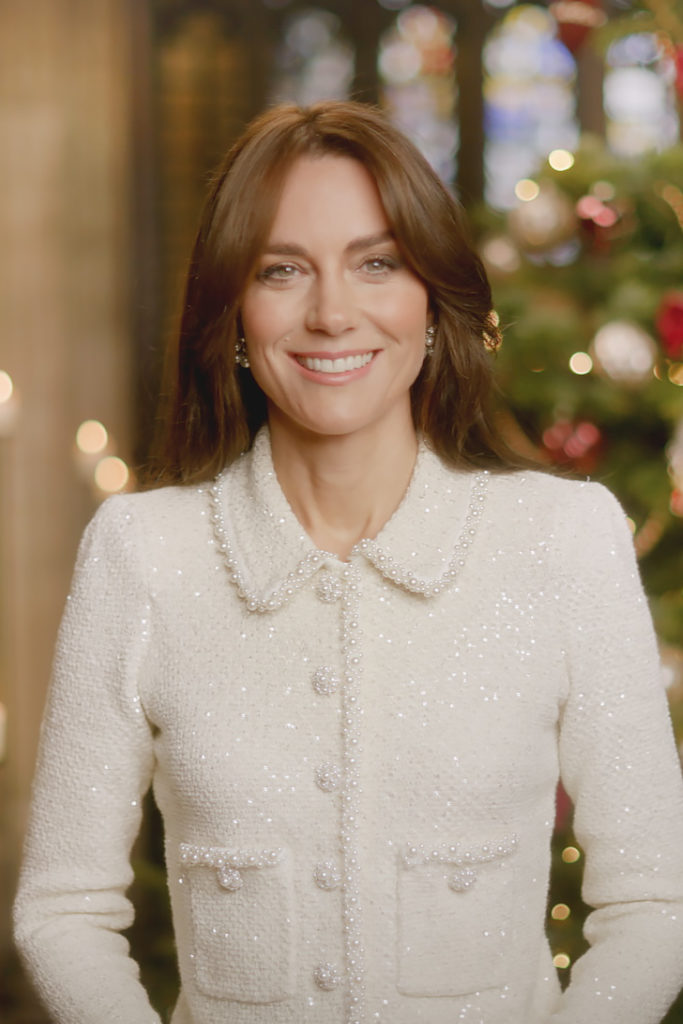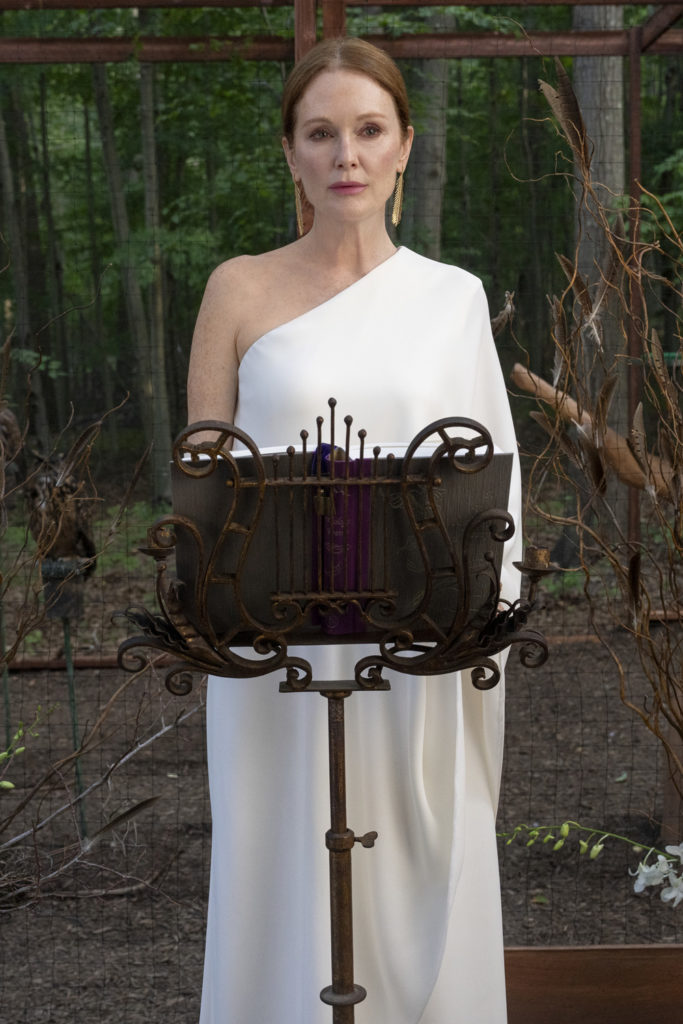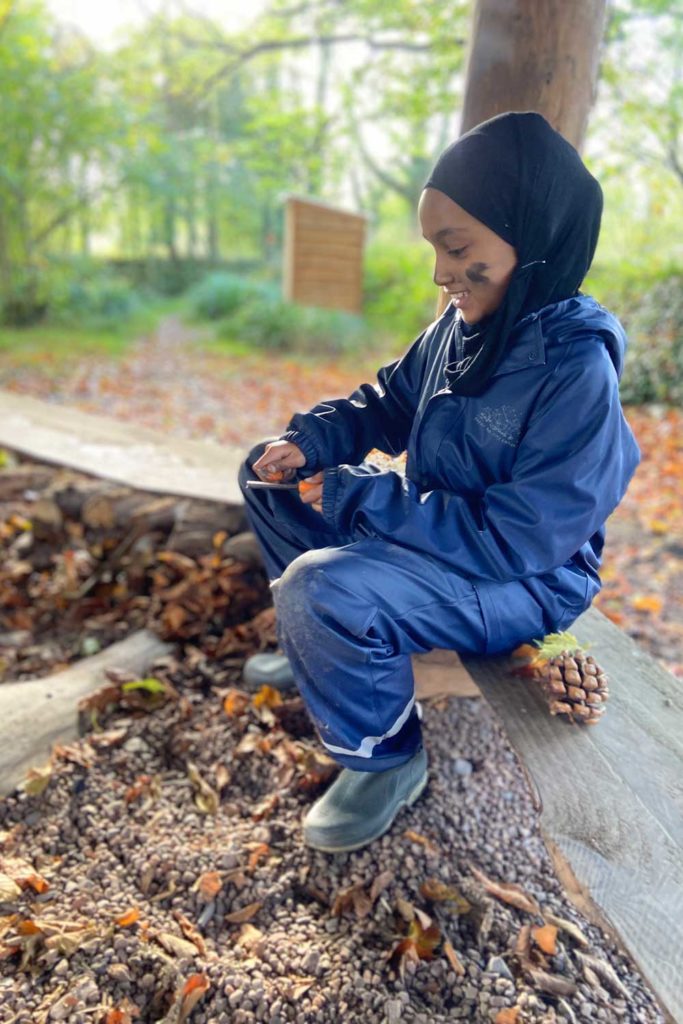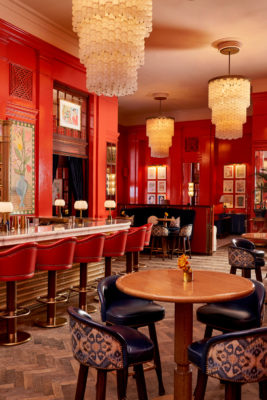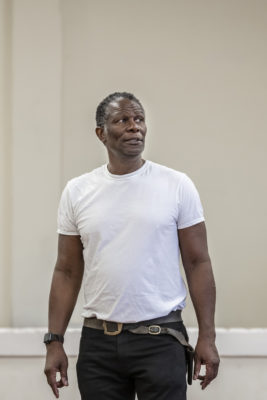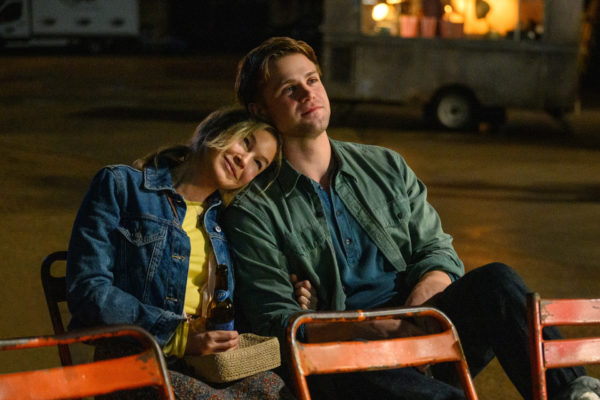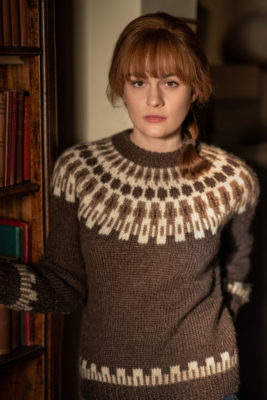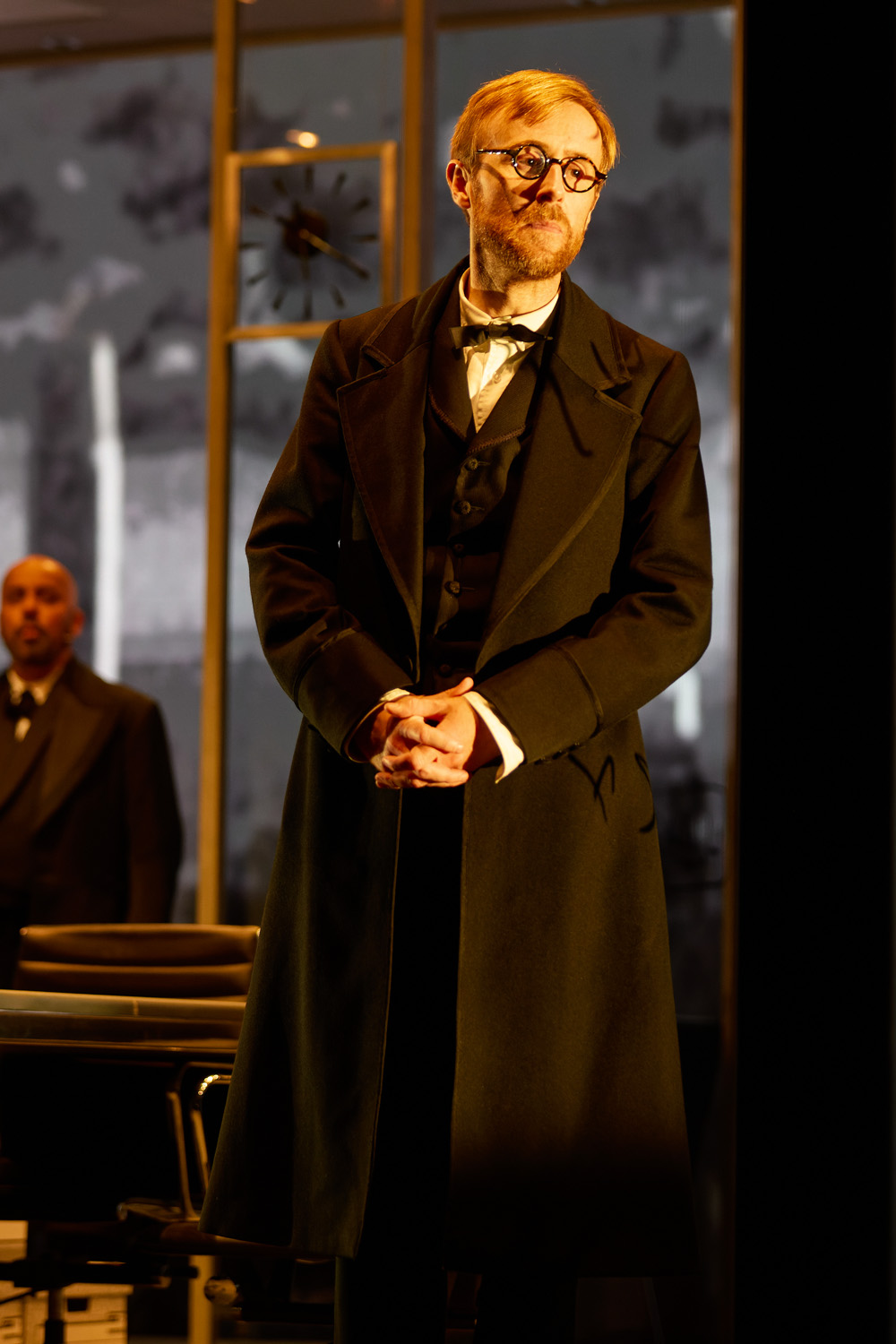
John Heffernan On Starring In The Lehman Trilogy
By
1 year ago
Playing at the Gillian Lynne Theatre until 5 January
From a last minute phone call tapping him into the role of Henry Lehman to what goes on behind the scenes, we sat down with John Heffernan to talk all things The Lehman Trilogy, which has returned to the Gillian Lynne Theatre for a limited run.
Interview: John Heffernan On Starring In The Lehman Trilogy
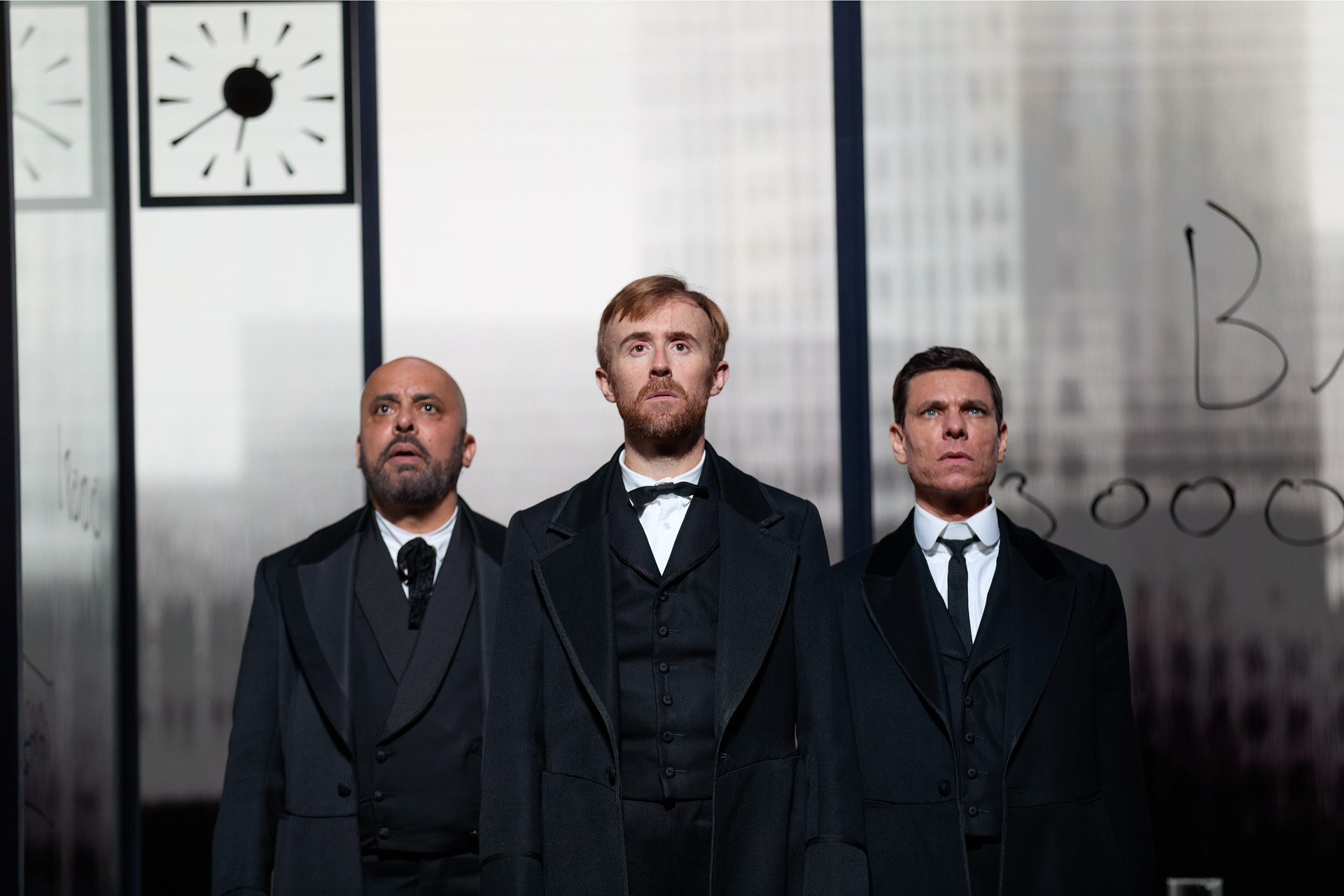
Howard W Overshown, John Heffernan & Aaron Krohn in The Lehman Trilogy. (© Mark Douet)
Hi John, you can currently be seen in The Lehman Trilogy – how is it going?
It’s going really well. We’re getting great responses from the audiences. It seems to have picked up a very loyal following. Considering that it’s had a few runs already in London, it’s an interesting combination of people who come to see the show: lots of people who are coming for the first time, but I have encountered a few people who’ve come multiple times. There’s a lot in the play – it rewards multiple viewings. It has been a treat to do.
Can you tell us about your role?
When I first saw The Lehman Trilogy at the National Theatre in 2018, I thought it was a play about the collapse of the bank – which is all I knew about Lehman brothers, if I’m honest. The play does deal with that, but it takes a broader view of the family history. The character that I play, Henry Lehman, was the first person to travel from Bavaria in Germany to New York. The play starts with him getting off the boat in New York in the 1840s and establishing a small shop in Alabama buying and selling cotton. Then his three brothers join him, and it’s about the evolution of the business and the changes in the family. There’s only three actors in it, but as the play goes on, we all play multiple characters. I don’t want to give too much away, but even though I tell the story as Henry Lehman throughout the evening, the character dies quite early on, so we become different generations of the family and various wives, relations and other figures in the story. One of the pleasures, hopefully for an audience, is that you see these three actors morph into different people. It has an inherent theatricality to it, I would say.
As you say, you saw the play before you got the role. How did it feel when you found out you’d be starring in The Lehman Trilogy, and did seeing someone else star in your role change your preparation approach?
I’ve never done that before. It’s the first experience that I’ve had of stepping into a role, so that experience was new to me. But it was also a very particular circumstance: I ended up stepping in very last minute, because in the middle of an international tour, the fantastic actor who played Henry Lehman, Adrian Schiller, very suddenly and unexpectedly died. It all happened very suddenly. I got a slightly panicked phone call, saying, ‘Would you step in?’
I only had two weeks of rehearsal – what would normally be a seven week rehearsal process. So in answer to your question, I think if I’d had a full rehearsal process, I would, in some ways, have found that that side of it more intimidating. Simon Russell Beale played my part originally, and I’ve worked with him twice before. I’m a huge fan of his. I’ve been watching him on stage, and he’s a hero of mine since I was about 13 or 14. But to be honest, there was no time to get too hung up on that element of it.
Did that compact rehearsal alter your whole process, then?
I mean, I don’t know if I’d want to repeat it! It was pretty stressful. But I think what has worked in my favour is that the show has a very tight structure. It’s a wonderful thing to be part of, because it embraces different actors, sensibilities and tastes. But having said that, it has been choreographed to a large extent, quite tightly. There are just three actors in it, but a very key part of the show is a pianist who is in the audience the whole time and playing almost the entire time. So about 80 percent of the show is scored, and there is a musical pacing which is a negotiation, I guess, between the actors and and and the pianists. It became a sort of technical challenge.
Then a lot of the questions that you want to ask as an actor in the lead up to a role – before rehearsals and during rehearsals, character questions and things like that – inevitably came whilst I’ve been doing the show. We did five weeks in San Francisco, and we’re now doing three and a half months in the West End, so I’ve been learning as I’ve been going on. That has been really interesting in itself. I’ve done jobs where you can feel like you’re rehearsing for too long, and you start doubting yourself. Whereas this, as I say, there was no time for that, You just, you just went on instinct – which is no bad thing.
Do you have any pre-show rituals?
I don’t, to be honest. I have on other shows, but I haven’t with this one. So much of the play is storytelling and you play so many different characters, I don’t think it would be beneficial to put yourself in the head of one particular character half an hour before the show starts, because you have to tread lightly through all these different through all the different people. The only ritual that I have, so to speak, is technical warm ups. Quite frankly, I talk so much in the play, so I always make sure I do vocal warm ups and a physical warm up, otherwise it can become a bit of a physical strain. But that’s about it, really.
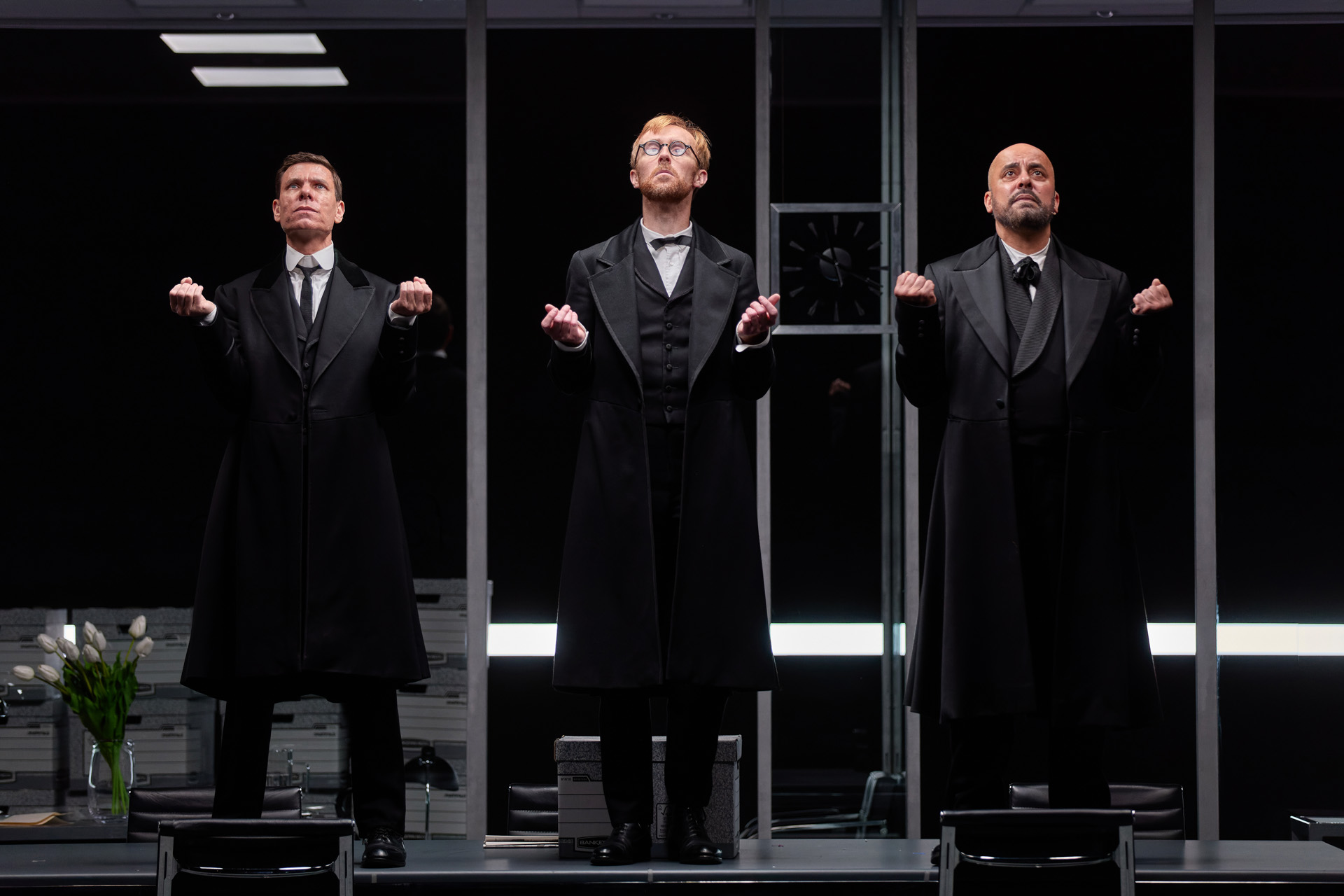
Aaron Krohn, John Heffernan & Howard W Overshown in The Lehman Trilogy. (© Mark Douet)
What is the dynamic like backstage?
I know actors tend to say this, and it becomes a cliche, but the three of us get on fantastically well. I can’t imagine doing this show where you didn’t get on. It would be miserable. You have to concentrate the whole time. There are no entrances and exits for us on stage. I mean, literally, we’re in a glass box. The curtain goes up at the beginning of each act. There’s three acts, and we are there, the three of us, the entire time. There’s nowhere to escape to. And if you let your mind wander at any moment, then you’re probably just about to slip up. So mentally, you’ve got to be very agile. Having said that, in the intervals and before the show, it’s a lovely atmosphere. It’s a very happy place to come into work, but on the stage itself, we’re all about just supporting each other. And as I say, there’s just an awful lot of concentration. It feels like a relay race where you’re constantly passing the baton on to your other players in the best way that you can.
Are you too exhausted or do you do anything after the shows?
It’s really boring, you know! And it’s a real shame, because it’s been a little while since I did a play in the West End, and I forgot they give you a membership sometimes to these clubs and it’d be wonderful to use them. The last big London show I did was Much Ado About Nothing at the National; we would go out and have a few drinks after that, and it was fantastic. But there is something about this show where we’re just knackered – in the best way! We do go out occasionally, but there is a lot of adrenaline going around. It is a long play, but the audiences come out elated and buzzing from it, and it’s amazing. And we do as actors as well, but if I’m honest, doing seven shows a week, we have to take care of ourselves!
Any standout moments from rehearsals or the performances?
Several, but the moment that comes to mind was when we were in San Francisco. I was very conscious of the fact that, in some ways, the subject matter is even rawer for an American audience than it is for an English audience. There’s a moment in the play where it gets nearer to the present day, and the Lehman Brothers bank becomes almost like a gambling casino, dare I say it. They’re gambling with people’s money, and we were in the middle of a speech talking about how the Lehman Brothers are going to conquer the world, and and a woman shouted out in the middle of theatre, ‘Lehman Brothers, I’ll see you in hell!’ And she shouted out a couple more times, and it was quite shocking. I’ve not really ever experienced anything like that before. But of course, there were people in the audience who worked for Lehman Brothers or had lost a lot of money through the collapse of Lehman Brothers, so it was very fresh for them.
Are there any other standout shows that you’ve worked on, on stage or screen?
There are several which I feel really fortunate to have been involved in. There was a production of a play called After the Dance a few years ago at the National Theatre. It was a play that not many people knew, and the National Theatre programmed it for a couple of months in the summer, and it had a young actor called Benedict Cumberbatch in the lead. Halfway through the run, the first episode of Sherlock came out. It was an unforgettable experience. People talk about overnight success, and it’s sort of a cliche, but that’s literally what that was. I won’t forget it. I remember him coming in the next day saying, ‘I’ve just been recognised on the cheese counter at Tesco!’. He went from being a highly respected actor but perhaps not that well known, to us suddenly having queues around the block at the box office to see the show. Three or four weeks later, he had a call from Steven Spielberg, and he was off to do War Horse. It was just amazing to witness that close hand. And generally it was an amazing play, with an incredible actress called Nancy Carroll in it, and she won the Olivier Award for it. And Adrian Scarborough is also brilliant; I think he won the Olivier Award, too. It was a very, very happy time.
I also loved playing Richard II at a small theatre in Bristol called The Tobacco Factory. I got to play Oppenheimer before the film for the RSC. My daughter was born at the time that I was doing that. It was due to have a short run in The Swan Theatre in Stratford, but it got amazing reviews so it transferred to the West End. Again, an incredible play with such an amazing arc of that character’s journey, the hubris, what he wants out of the Manhattan Project, and then going into what happens to him afterwards.
I loved playing Benedict in Much Ado at the National over the summer. That was just pure joy. Getting to be in Mark Gatiss’ Dracula was great, with Claes Bang and Dolly Wells. I got to play Jonathan Harker, and we got to go to the castle where they filmed Nosferatu out in Romania. There’s such a huge amount of history there, and the scripts were brilliant. They did something so fantastic, I thought, with Jonathan Harker.
How would you say your approach to a project differs between theatre and screen?
Well, they’re so different because on screen, you have to do a lot of the work by yourself. It’s quite rare to get any rehearsal time at all. Whereas theatre is quite a staggered process. You do your own prep, then you have a read through, then you rehearse, then you have technical rehearsals, then previews, then press night, and there are so many different stages to it, Whereas with TV and film, unless the director or the producers have the money for rehearsals, you’re often meeting the actor for the first time an hour before you shoot. I find that I’ve got to do all of my prep before, but at the same time be flexible enough to be able to work with the other actors and with the director, where they want to put the camera and all the rest of it. In my experience, it’s chalk and cheese, really, in terms of approaches. I enjoy both. They’re just quite different muscles.
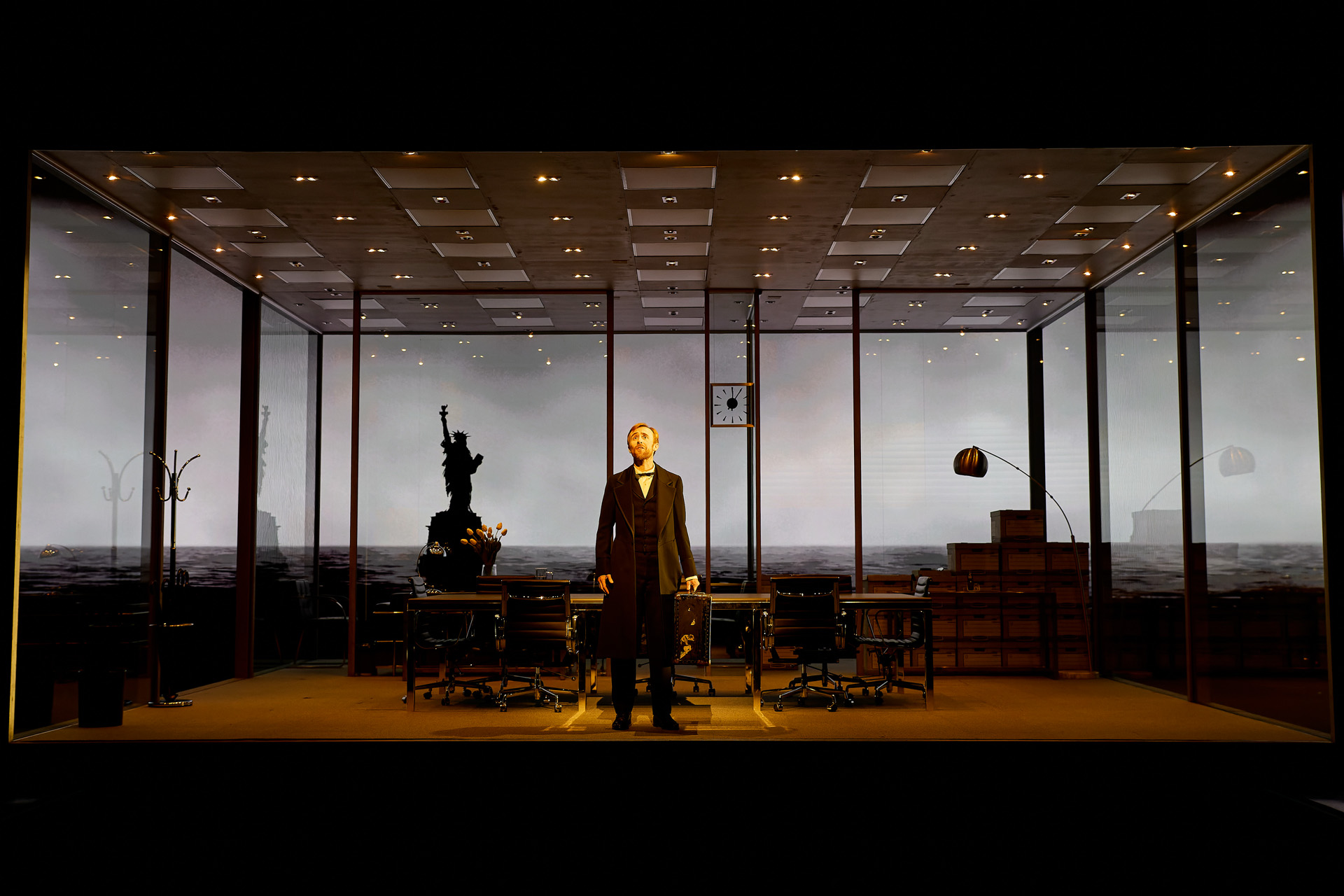
John Heffernan in The Lehman Trilogy. (© Mark Douet)
Do you have any bucket list plays or roles?
I used to have a bucket list, but I’ve come to realise that, often, the plays I’ve enjoyed the most are the ones that have taken me by surprise. I would never in a month of Sundays have thought that I’d get to play Benedict, but I had one of the best times of my life playing him. I wouldn’t say no to playing Richard II, again – that’s an incredible part. I’d love to have another crack at that. I’ve never really done any Chekhov or Ibsen, and I’d love to do that. But one of the scary things but also one of the delights of this job is you never know what’s coming next. That’s part of the thrill of it.
What’s a genre you’d like to do more of?
I don’t tend to watch them myself, but I find the horror genre quite interesting. Dracula touches on that. There were some real comedic moments in that, but it was also very dark – quite grisly. But how that works, mechanically, the technical requirements of horror, I’m really fascinated in. I’ve done a few comedies on stage, but I don’t think I’ve ever done a full comedy on screen – that would be wonderful. Then, of course, there are directors that I’d really like to work with. I’m watching Wolf Hall: The Mirror and the Light at the moment, and I’ve been a huge fan of the director Peter Kosminsky for years; I’d give my eye teeth to work with him.
Who else would you love to work with?
There are actors who I admire so much, and have been so lucky to work with – like Simon Russell Beale and Alex Jennings. I would love to work with Roger Allam – I’m a huge fan of his. In terms of directors, Peter Kosminsky, of course. I’d love to work directors whose approach is fairly unique. I’d be fascinated to do a project with Mike Lee, for instance, or with Dominic Savage, or one of those directors who have just a very particular way into a script. Alexander Zeldin in the theater; I’m a huge fan of his work. I saw The Other Place the other week, which I thought was tremendous. Simon Stone: I’ve seen a few of his opera productions and also his theatre productions. He did an amazing modern reworking of Phaedra with Janet McTeer.
Any roles in the pipeline that you’re excited about? (If you’re allowed to tell us!)
There’s the possibility of things, but they’re not confirmed yet. I’ve been spending a lot of time in the theater – which I’m very grateful for – but I was doing a play in Chichester, and then I did a play at the Young Vic earlier in the year, and then I went straight into The Lehman Trilogy. So it’s been a really exciting year, but I’m quite looking forward to a little bit of a break!
Anything in your personal life you’re looking forward to?
I’ve got quite a big family and we’re all going to be together for Christmas. I’ve been in theatre over Christmas in previous years, and sometimes you work on Christmas Eve or Boxing Day – or both – but we’re very lucky in that we’ve got all three of those days off. We’re going to go away for that time, which will just be really magical. I can’t wait for that. We’re going to see the Christmas show at The Watermill Theatre in Newbury, which I think is one of the most beautiful theatres in the country. I’m really excited to see The Tempest with Sigourney Weaver – and Cat on a Hot Tin Roof with Daisy Edgar Jones. I’ve got my ticket for that. It feels like theatre is in a really good place at the moment, which is just marvellous.
WATCH
John Heffernan stars in The Lehman Trilogy, playing at the Gillian Lynne Theatre until 5 January 2025. nationaltheatre.org.uk

